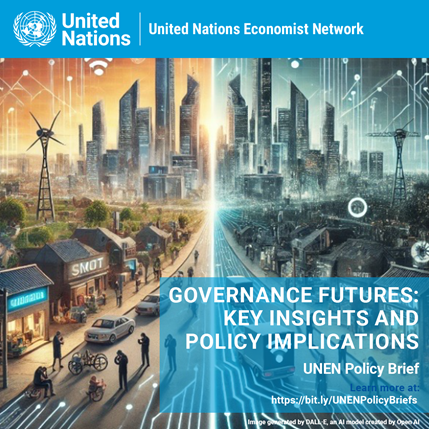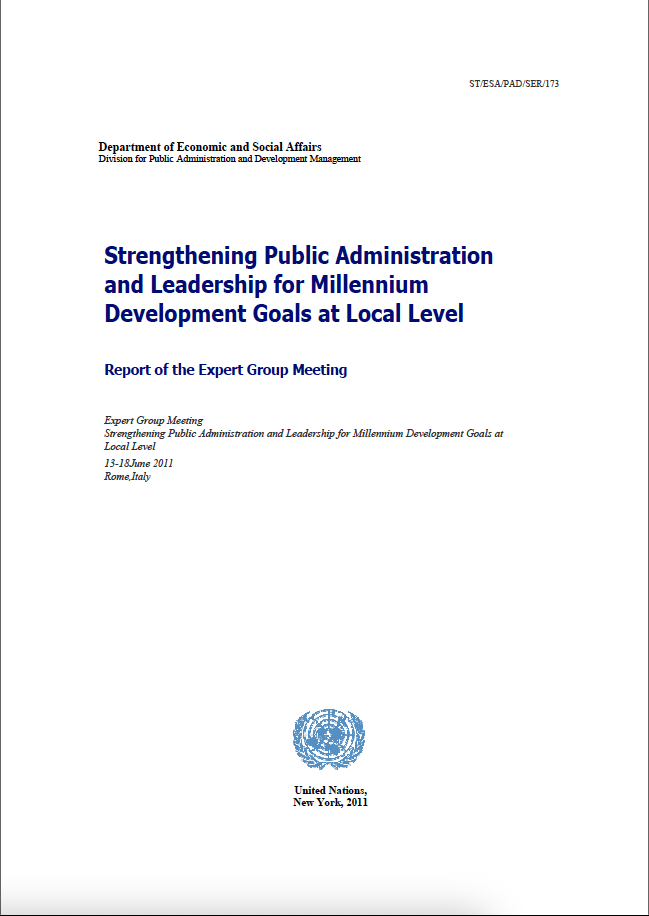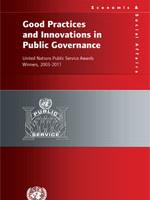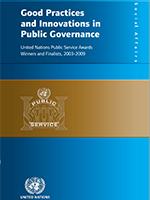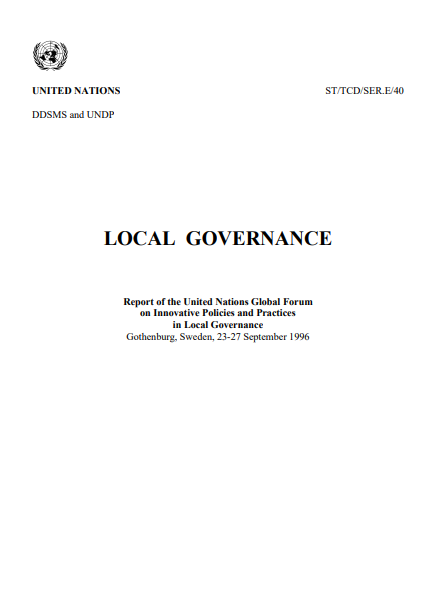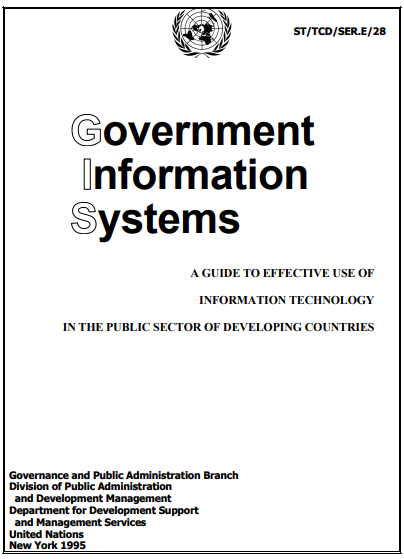| Publications | Policy Briefs | Public Institutions
UNEN Futures and Foresight Policy Brief: GOVERNANCE FUTURES
The UN Economist Network has released a new Futures and Foresight Policy Brief on Governance Futures: Key Insights and Policy Implications. This Policy Brief examines the limitations of current governance systems and proposes alternative models…
| Publications | World Public Sector Reports | Public Institutions
World Public Sector Report 2023
Transforming institutions to achieve the Sustainable Development Goals after the pandemic.The World Public Sector Report 2023 examines the role that national institutional and governance innovations and changes that emerged during the COVID-19…
| Expert Group Meeting Reports | Digital Government | Participation and Accountability
Report of the Expert Group Meeting on E-Procurement: Towards Transparency and Efficiency in Public Service Delivery
This is a concept paper prepared in response to the demand from United Nations Member States in understanding the challenges, potential and available options in improving or developing E-Procurement systems.
This paper is based on a series of…
| Expert Group Meeting Reports | Transformational Leadership and New Mindsets
Report of the Expert Group Meeting on Strengthening Public Administration and Leadership for Millennium Development Goals at Local Level
The Division for Public Administration and Development Management (DPADM) of the United Nations Department of Economic and Social Affairs (UNDESA) collaborated with the International Association of Schools and Institutes of Administration (IASIA) to…
| Good Practices and Innovations in Public Governance | Public Service Innovation
Good Practices and Innovations in Public Governance
This publication provides an overview of 145 successful innovations in governance and public administration from 50 countries that received the United Nations Public Service Awards, which is the most prestigious international recognition of…
| Expert Group Meeting Reports | Digital Government
Report of the Expert Group Meeting on E-Government Survey: Getting to the Next Level
The United Nations E-Government Survey is one of the major recurrent flagship publications of the Division for Public Administration and Development Management (DPADM) of the United Nations Department of Economic and Social Affairs (UNDESA). It has…
| Good Practices and Innovations in Public Governance | Public Service Innovation
Good Practices and Innovations in Public Governance: United Nations Public Service Winners 2003 - 2009
This publication provides an overview of 85 successful innovations in governance and public administration from 40 countries that received the United Nations Public Service Awards, which is the most prestigious international recognition of…
| Good Practices and Innovations in Public Governance | Public Service Innovation
Innovations in Governance in the Middle East, North Africa, and Western Balkans: Making Governments Work Better in the Mediterranean Region
Innovations in Governance in the Middle East, North Africa, and Western Balkans: Making Governments Work Better in the Mediterranean region leads us through the journey of innovation by analysing the challenges and opportunities that governments in…
| Publications
Administrative Reforms: Country Profiles of Five Asian Countries
In recent years, many countries have undertaken administrative reform as a crucial step towards strengthening their economy and better management of their social development. The state is still playing a key role in the change management of nations…
| Publications | Local Governance
Local Governance- Report of the United Nations Global Forum on Innovation Policies and Practices in Local Governance
Discussions about innovative aspects of the relationship between central and local government (with a view to decentralization and strengthening the mobilization of civil society) are critical to the practical implementation of the Agenda for Peace…
| Publications | Digital Government
Government Information Systems
Inexpensive and powerful microcomputers, telecommunications technologies, and information systems have become an essential element of the development process of developing countries. Information systems for governance and public administration, as…
 欢迎来到联合国,您的世界!
欢迎来到联合国,您的世界!
